
Although treatment with tirofiban improved the odds of excellent outcome, results for the secondary end points did not consistently support the primary end point analysis.

Although treatment with tirofiban improved the odds of excellent outcome, results for the secondary end points did not consistently support the primary end point analysis.
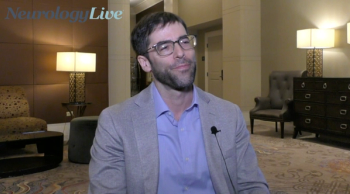
The director of movement disorders at the Banner Sun Health Research Institute discussed the challenges in diagnosing atypical Parkinsonian disorders and the potential role of biomarkers in improving diagnostic accuracy. [WATCH TIME: 5 minutes]

NS-050/NCNP-03, an exon skipping investigational therapy, has been cleared by the FDA for the initiation of a phase 1/2 clinical study for the treatment of Duchenne muscular dystrophy.

Boris Kantor, PhD, associate research professor of neurobiology, and Ornit Chiba-Falek, PhD, professor in neurology, both faculty at Duke University, discussed research on an innovative epigenome therapy targeting the APOE gene, a significant genetic risk factor for Alzheimer disease.

Positive data from the 25 mg cohort study exploring Larimar Therapeutics’ CTI-1601 has been submitted to the FDA, with a meeting scheduled with the agency later this quarter to discuss steps for a phase 2 trial.
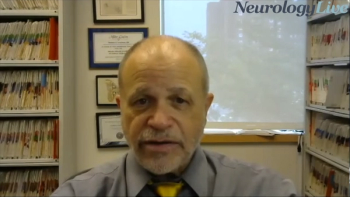
The pediatric neurologist at Johns Hopkins Medicine discussed the importance of early diagnosis in SMA, and the notable barriers that come with obtaining disease-modifying therapies. [WATCH TIME: 4 minutes]

After nearly 13 years of follow-up, 36% of patients with relapsing multiple sclerosis had a confirmed Expanded Disability Status Scale score worsening.
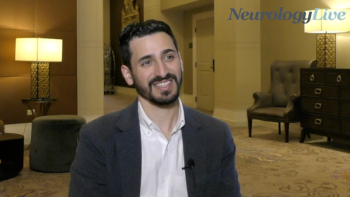
The director of the Movement Disorders Center at Baylor University Medical Center in Dallas, a part of Baylor Scott & White Health, discussed the current state of treatment for Parkinson disease and gene therapy as a promising treatment for the management of the disease. [WATCH TIME: 5 minutes]

The combination of digital cognitive behavioral therapy and medication resulted in a sustained improvement in sleep quality compared with monotherapy modalities.

Following a successful first patient treatment experience with TSHA-102, an adeno-associated virus vector-based gene therapy for Rett syndrome, Taysha Gene Therapies was recommended to continue with investigating the therapy in a second patient.

Investigators concluded that the growing and testing of motor neurons from patient-derived induced pluripotent stem cells could be clinically used for the prediction of ropinirole’s efficacy as a treatment for patients with ALS.

The director of research for internal medicine and geriatrics at Indiana University School of Medicine discussed the advantages digital assessments bring to clinics, and what role they will play in the coming years. [WATCH TIME: 3 minutes]

Because its gut-acting and gut-restricted, the safety profile of DGX-001 was considered advantageous in comparison to traditional neuropsychiatric therapies.

The associate professor in the department of population and quantitative health sciences at Case Western Reserve University School of Medicine talked about the presentation of multiple sclerosis in Latinx individuals compared with White Americans. [WATCH TIME: 5 minutes]

The pediatric neurologist at Johns Hopkins Medicine provided clarity on the recently published 5-year update of the NURTURE study, and the importance of treating spinal muscular atrophy at its presymptomatic stages.

Sharon L. Rogers, PhD, chief executive officer at AmyriAD Therapeutics, discussed AD101, a novel drug that targets the core symptoms in Alzheimer disease, and highlighted the importance of symptom management strategies.

Phase 1 trial results investigating UB-312 revealed target engagement of aggregated alpha-synuclein in cerebrospinal fluid of patients with Parkinson disease, providing validation of the vaccine technology to selectively target aggregated, toxic forms of neurodegenerative proteins.
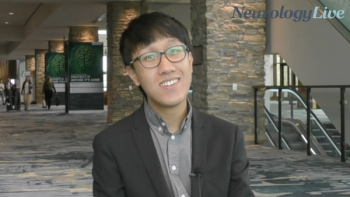
The PhD student in the department of electrical and computer engineering at Johns Hopkins University discussed the use of artificial intelligence and image harmonization techniques to address the challenges caused by multisite effects in neuroimaging. [WATCH TIME: 4 minutes]

Episode 36 of the AUPN Leadership Minute features Rohit Das, MD, of University of Texas Southwestern Medical Center at Dallas; and David G. Standaert, MD, PhD, of the University of Alabama at Birmingham. [WATCH TIME: 4 minutes]

Sleep stage percentages were not associated with global cognition across cohorts, while patients with mild to severe OSA displayed poorer global cognitive function.

The assistant professor of neurology at the University of Colorado School of Medicine talked about the importance of addressing family planning with patients with multiple sclerosis. [WATCH TIME: 5 minutes]

Harmony aligned with the FDA on the proposed phase 3 design elements, which is expected to kick off later this year.
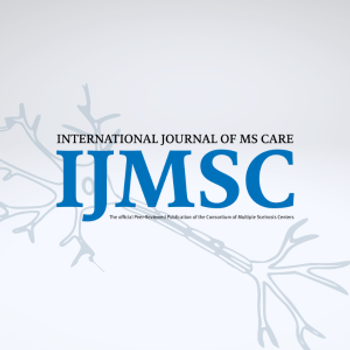
Review the latest peer-reviewed articles dedicated to the multidisciplinary management of multiple sclerosis published in the International Journal of MS Care.

The findings provided safety and tolerability data for using liothyronine in future, larger studies of multiple sclerosis, with the potential to be observed in combination with other therapies.
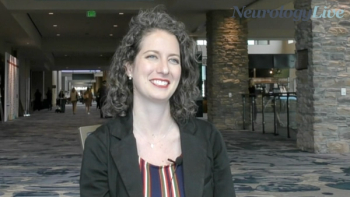
The neurologist at NorthShore University Health System in Chicago discussed a retrospective study on patients with multiple sclerosis who switched from high or moderate efficacy disease-modifying therapies to lower efficacy ones. [WATCH TIME: 5 minutes]

Intravenous thrombolysis with recombinant human prourokinase resulted in a 16.4% lowered risk of systemic bleeding in comparison with alteplase treatment, which was consistent with previous phase 2 data.
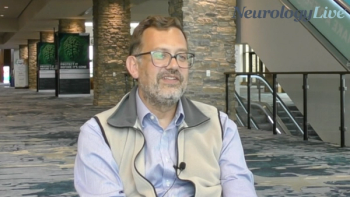
The associate professor of neurology at the University of Colorado School of Medicine discussed results of phase 3 studies assessing therapeutics on the impact of fatigue experienced by patients with multiple sclerosis. [WATCH TIME: 5 minutes]

Here's some of what is coming soon to NeurologyLive® this week.

Research shows that carrying the APOE e4 variant significantly increases lifetime risk for late-onset Alzheimer disease, and additional evidence suggests that lowering the variant expression may be a promising therapeutic target for the disease.

Test your neurology knowledge with NeurologyLive®'s weekly quiz series, featuring questions on a variety of clinical and historical neurology topics. This week's topic is epilepsy and seizure disorders.